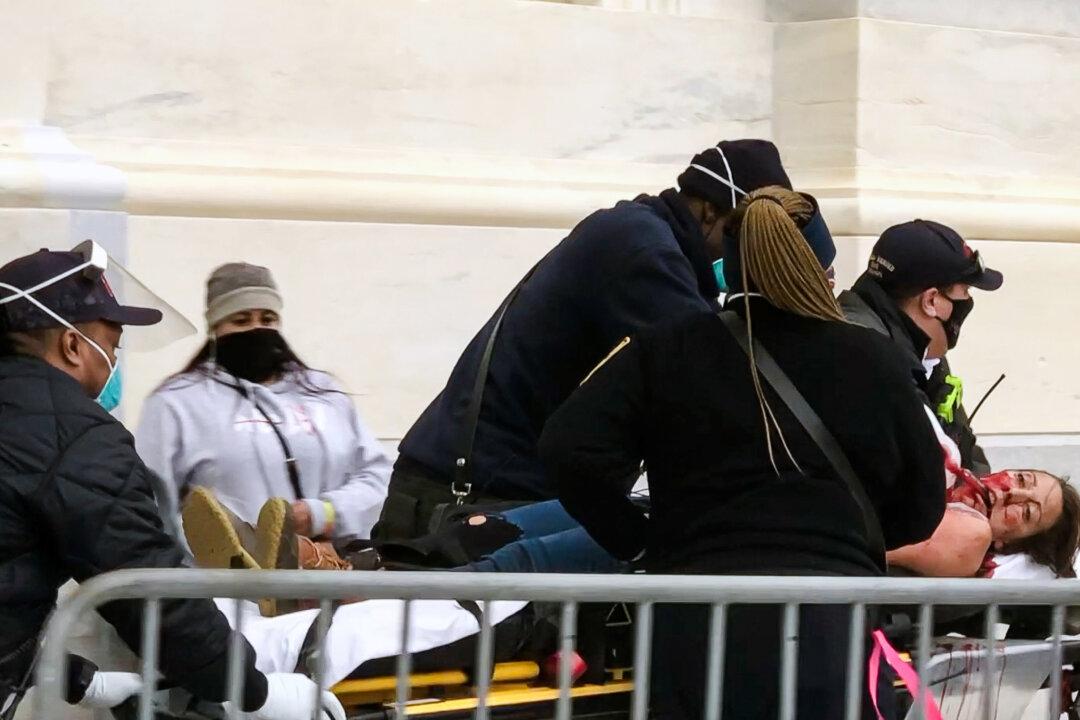Attorneys for the estate of Ashli Babbitt have filed opposition to an attempt by the U.S. Department of Justice to move a $30 million wrongful-death lawsuit brought by her widower from San Diego federal court to Washington.
The DOJ filed a motion for change of venue in the U.S. District Court for the Southern District of California, where Aaron Babbitt filed suit in January for the shooting death of Ms. Babbitt, 35, by Lt. Michael Byrd at the U.S. Capitol on Jan. 6, 2021.





